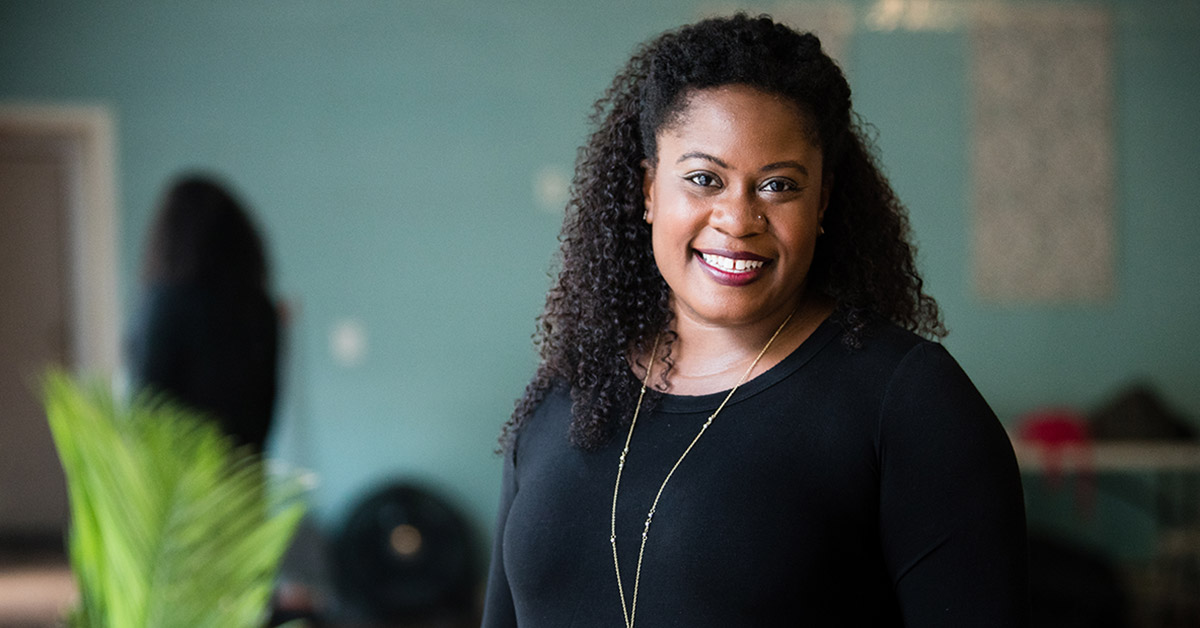The U.S. in the only industrialized nation with rising maternal mortality rates. Nationally, Black mothers are four times more likely to die than their White counterparts around the time of childbirth. In Minnesota, which is consistently ranked among the healthiest states in the country, Black mothers are at risk of suffering this same fate. The mothers’ income and education level do not affect these outcomes, and their infants are twice as likely to die in their first year than White babies.
School of Public Health Associate Professor Rachel Hardeman is tackling these startling health inequities and the racism they exemplify with sound data points and stories of lived experiences. Her work is powerful and life-saving and the University of Minnesota recently honored her with a McKnight Presidential Fellow Award.
The University gives the three-year award to faculty who show excellence in research and scholarship, leadership, and ability to advance University of Minnesota priorities. They must have also been granted both tenure and promotion to associate professor in an academic year. Hardeman was one of only six faculty chosen this year for the award.
School of Public Health dean, John Finnegan, recommended Hardeman for the honor.
“Rachel is taking on work that is essential to making health a human right, and she is going up against one of our country’s most entrenched, insidious, and destructive forces — racism,” says Finnegan. “I put her forth for this award not only because of her vital and extremely productive research, but also because her collaborative approach translates its findings immediately into practice. We, and the University, are extremely lucky to have Rachel on our faculty.”
In 2016, early in Hardeman’s academic career, she co-authored an eye-opening article in the New England Journal of Medicine (NEJM) called “Dismantling Structural Racism, Supporting Black Lives and Achieving Health Equity: Our Role.” It challenged researchers and the medical community to take an active role in confronting racism, a term rarely used in medical literature: Over the previous 11 years, the authors noted, only 14 NEJM articles contained the word “racism.” Since publication, the article has been used as a teaching tool to guide critical conversations about the impact of racial history on current thinking and practice in health care.
“Rachel is taking on work that is essential to making health a human right, and she is going up against one of our country’s most entrenched, insidious, and destructive forces — racism.”
Hardeman’s work delves into areas where structural racism and systematic bias survive and thrive — such as housing, incarceration, policing, health care, and medical education — and investigates their affect on health. Her research offers ways to begin dismantling racism and to tackle its concurrent health disparities.
As part of a Robert Wood Johnson Interdisciplinary Research Leaders team, Hardeman studied practices and outcomes at Roots Community Birth Center, the first and only Black-owned birth center in Minnesota. Hardeman examined the benefits of the center along with Roots’ owner, Rebecca Polston, and SPH colleague Associate Professor Katy Kozhimannil. The healthy experiences of the mothers at Roots showed Hardeman that one path toward dismantling health inequities is through the power of community-connected and culturally centered care.
The McKnight Presidential Fellow Award will help Hardeman enhance her research vision through the Measuring & Operationalizing Racism to Achieve Health Equity Lab (MORHE Lab), which she created in January 2020. The lab’s aim is to build empirical, quantitative evidence of how racism harms population health and to identify pathways for intervention to advance racial health equity.
“I am deeply honored to be selected for the McKnight Presidential Fellowship,” says Hardeman. “My professional work is guided by my core personal goals: to produce knowledge to improve racial and gender health equity and to build an intellectual community to expand and promote what we’ve learned. I look forward to continuing and amplifying this work in the years ahead from my position as a researcher, teacher, and publicly engaged scholar at the University of Minnesota.”
__________________________________
Learn more about Rachel Hardeman:
- Hardeman Leads New Project Addressing Racial Inequalities in Birth Outcomes
- Linking Structural Racism and Health
- Women Who Declined Medical Care During Hospital Births Report Poor Treatment Overall
- Measuring Structural Racism
- Tuskegee study’s medical exploitation led to population-wide declines in health among black men

